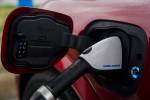How your credit score determines your loan APR
The importance of a good credit score can’t be understated when applying for any type of loan — that much is certain, particularly when it comes time to buy a car.
“The credit score essentially paints a financial picture of a person, and helps determine the likelihood of them paying back the loan that was given to them,” wrote Andrew Kaufman for CarsDirect.
But that picture is frequently painted in such broad strokes that it’s easy to become confused about credit scores and interest rates. We often tend to hear statements like “700 or higher” is an excellent credit score, but what interest percentage that equates to is unclear, just like hearing that poor credit is anywhere from 680 to 620 or below.
While the numbers do admittedly vary, they’re not quite as subjective as you might think. Take a look below to get an idea of what kind of auto loan interest rates you can find according to your FICO score.
Keeping Score With Your Credit
Determine what your credit score is. Thanks to the Fair Credit Reporting Act (FCRA), you are allowed to receive a free copy of your credit report once each year from the national credit reporting companies — Equifax, Experian and TransUnion. Many secure websites also offer a free credit score check.
Your credit score is determined on five different elements of your financial behavior:
- 35 percent for your payment history — assessing how you pay your bills or don’t pay them
- 30 percent for outstanding debts owed — this applies particularly to credit cards
- 15 percent for credit history — the length of time you’ve actively used credit
- 10 percent for new credit — how many new lines of credit have you opened
- 10 percent for types of credit — how many different types of credit you have (mortgage, credit cards, auto)
The Higher the Score, the Lower the Rate
Since there are three credit reporting bureaus (TransUnion, Equifax and Experian), you actually have three credit scores, each of which might differ. Say you get 780, 707 and 804 — don’t panic! There will always be minor discrepancies in every score (due to the bureaus’ own individual reporting criteria and scoring model), but in this case, they’re close enough numerically to indicate that your credit is excellent.
The same principal applies when it comes to determining the interest rate you’ll get based on your credit score: With minor differences, the higher the score, the lower the rate, and vice versa. For instance, myFICO.com breaks down its credit scoring and corresponding APRs into six categories:
Score - APR (60-month new auto based on national average)
720-850 - 3.313%
690-719 - 4.708%
660-689 - 6.760%
620-659 - 10.453%
590-619 - 15.708%
500-589 - 17.096%
(Information up-to-date as of Aug. 26, 2014.)
How Low Can You Go?
When it comes to securing an auto loan, always try to settle for less — in APR terms, that is. One solution is to print out your credit score and bring it with you if it ranks in the top tier; this could help with bargaining power. Dealer financing is more direct and convenient, but could come with its share of haggling, negotiating, fees or other factors that can leave the average car buyer with an inflated interest rate.
Instead, it bears repeating that pursuing your car financing through an accredited bank or credit union has its many benefits, especially through the latter route: Credit unions traditionally take their profits and return them to their members in the form of lower loan rates and offer loan promotions.
If your credit isn’t the best, don’t stress. Take advantage of the many different ways to rebuild your credit, like opening a secured credit card, or working with your creditors to resolve any outstanding debt. And remember that your lowest APR is only as good as your highest credit score.
Related links:
-Common car dealer financing tricks to avoid
-3 reasons why you definitely don’t want to rent a car on vacation
-How to convince the dealership to give you its lowest auto loan rate




























